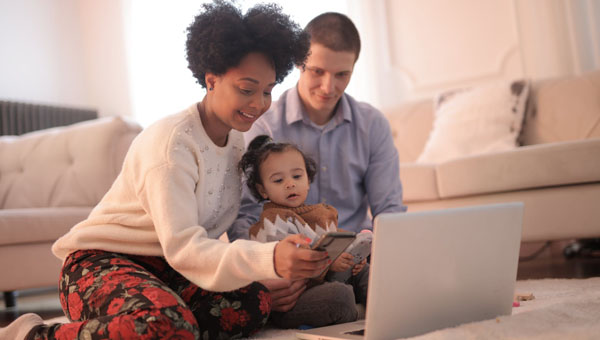By Yvonne Sam
Contributing Columnist
 The closure of schools, stores, churches, social gathering places, offices, bars and cinemas, near and afar, have devastated the social engagement of adults. Consider the impact on youths, teens and young adults, who thrive on social contact and building relationships.
The closure of schools, stores, churches, social gathering places, offices, bars and cinemas, near and afar, have devastated the social engagement of adults. Consider the impact on youths, teens and young adults, who thrive on social contact and building relationships.
Long before the Coronavirus made an appearance, parents were already belly-aching about their kids on social media. Now it will erupt into social isolation, and the eruption of digital engagement, multiplied by the number of days in social isolation — the only outlet will be digital.
Jokes abound about how many births there will be in nine months, whereas, specifically, the additional concern will be how many of our young will be social media and digitally shackled to their phones.
There will be new issues with the engagement of youths being social, after the Corona virus isolation. What parents may fail to fully realize are the effects that their kids may be going through mentally, and the content they are creating, and sharing.
The access to social media should be a tool for parents to have additional access to their children. Now that they are fully at home, and in full sight, how can digital tools bring about positive engagement and interaction?
Parents should create a common understanding with their children, that they are responsible for communicating with each other, and encourage the sharing of content that builds stronger relationships, instead of digital distractions and further separation.
Children, as young as three years of age, are developing skills in technology, unheard of five years ago. Many toddlers have the fine motor skills of adults, where they can text, Tweet, and WhatsApp, even before they have formalized verbal communication.
Because of their digital engagements with devices, the comprehension levels of children are now more advanced than previously known. However, the knowledge to apply these skills is still lost, in how to effectively grow beyond the inability to empower and educate.
There needs to be a balance of engagement, exploration, interaction and entertainment. Parents need to research and explore, before feeling frustrated, stressed and even defeated, because they cannot “connect” with their kids. Engagement is vitally important, as well as doing things together.
It is imperative that parents understand social media, especially since it is a representation of our society, both good and bad. Children cannot be left online, without parental supervision and monitoring. When unsupervised, kids get the wrong messages about relationships.
The social dynamics of online lives are setting the foundation for youth, teens and young adults in their behaviors with each other, their families; and this is embedded in their social engagements with school and society. Children are growing more in love with their digital devices and access to social sites, than they are to their humanity.
More and more children are manipulating their parents, so they (children) can get their digital “fix”, either from Twitter, Instagram, or Gaming. Parents are finding that their little boys and girls are being lost to a matrix of useless information that only encourages disconnection from family and friends, in the real situations of social engagement.
The violent reaction, temper tantrum and “hissy fit”, displayed by the young, at the mention of having their phones taken away, is quite disturbing. In the majority of cases, phones that they, the users, neither purchased, nor are making monthly contributions towards the payment.
In some cases, parents sacrifice, each month, to buy their kids the best phones, with the fastest connection, high-definition cameras and stereo sound capability, but now these same parents are scared of their children — and the children know this.
Not only must parents make high expectations, regarding digital behaviors, but also when ready, take the devices to “check” behaviors, and be proactive to potential situations.
The social dynamics of human interaction shows that they are social creatures. They can be involved in multiple levels of exchanging information, using verbal or body language. Digital devices can expand this engagement, either in good ways or bad.
Coronavirus is spread by social engagement and now social distancing is the safe way to be. This time of Coronavirus is not just the ravages of a virus, but additionally, the change in mentality and means of digital social engagement. There should be play time, social time, family time, daddy time, mommy time with the children.
Parents are digital role models, hence they should re-engage with their children, to learn about them, before they become lost and have no desire to connect, communicate or socialize with parents. Yes, parents are ultimately the social media role models, and as such, should set the model for online behaviors and adventures that can be fun and a digital journey for the family.
Parents are called upon to integrate social in home and digital in virtual exchanges, by taking virtual field trips, together, to zoos, museums, libraries and even virtual reality experiences that everyone can enjoy and be engaged with. Applying social digital travels around the world and connecting with digital art museums, cultural museums, and STEAM events that are engaged and active.
Parents get involved with your children, before the challenges are beyond Coronavirus, by building and maintaining a relationship with your children. One aspect is the disconnect from digital devices to sharing real human time with family, and even sharing digital engagements to build stronger relationships.
Show the children you care by joining them in becoming digitally aware. Be endemic in this pandemic.
Aleuta — the struggle continues.
Yvonne Sam, a retired Head Nurse and Secondary School Teacher, is Vice-president of the Guyana Cultural Association of Montreal. A regular columnist for over two decades with the Montreal Community Contact, her insightful and incursive articles on topics ranging from politics, human rights and immigration, to education and parenting have also appeared in the Huffington Post, Montreal Gazette, XPressbogg and Guyanese OnLine. She is also the recipient of the Governor General of Canada Caring Canadian Citizen Award.
 Pride News Canada's Leader In African Canadian & Caribbean News, Views & Lifestyle
Pride News Canada's Leader In African Canadian & Caribbean News, Views & Lifestyle






